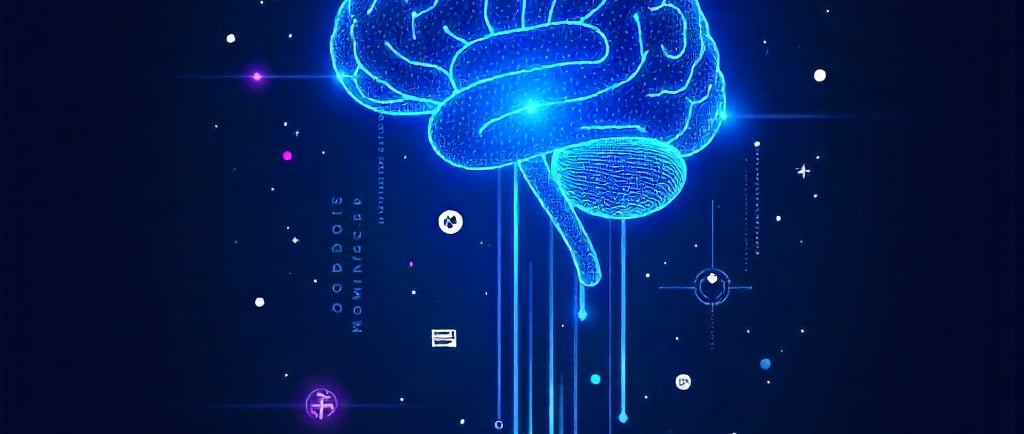How AI Is Changing the Tech Industry: The Future of Innovation
AI is revolutionizing the tech world — from automation and data analytics to cybersecurity and cloud computing. 💡 Explore how Artificial Intelligence is transforming innovation in 2025 and what it means for the future of technology. Read the full blog on 👉 TechGadgetWorld.in #AI #Technology #Innovation #TechTrends #FutureTech #ArtificialIntelligence


Introduction
The concept of artificial intelligence evolved from a fantasy of the future to one of the most dominating powers in the global tech landscape. From automation and data analytics to robotics and cybersecurity, AI is redefining the mechanics of technology and altering how humans interact with it. In 2025, AI stands at the heart of every big innovation, fueling advancements that once seemed impossible.
For tech enthusiasts and professionals alike, it's not just about being updated but actually staying ahead by understanding the idea of AI's impact. That being said, let's explore how AI is transforming the tech industry and what it will offer in the future.
1. AI-Powered Automation: Redefining Efficiency
Probably the most transformative effect of AI in the tech industry is automation. Today, companies are relying on machine learning algorithms and intelligent systems to bring efficiency, lower costs, and higher productivity.
AI-powered robots perform repetitive and hazardous tasks with high precision in manufacturing. In the area of software development, AI automates the testing process, debugging, and even code generation. Businesses are embracing Robotic Process Automation to handle customer queries, management of data entry, and optimization of workflows on their behalf to save time and reduce human error.
This is not a replacement of employment, but an empowerment for employees. By automating the mundane tasks, AI frees the professionals to focus on creativity, innovation, and strategy.
2. AI in Data Analytics: Turning Data into Insights
Data is the new oil, and AI is the refinery that extracts value from it. Every click, every search, every transaction, generates vast amounts of information; AI-powered analytics tools make sense of it all.
Companies like Google and Amazon, and even Microsoft, are incorporating AI into analyzing consumer behavior, making trend predictions, and personalizing experiences. Predictive analytics enables companies to make better, data-driven decisions on everything from product design to marketing strategy.
For startups and smaller tech firms, more affordable AI tools have created a level playing field for them to participate with major players using smarter data insights.
3. Rise of Generative AI: Where Creativity Meets Technology
Generative AI has taken the world by storm. In everything from code or content generation tools to graphic design and music composition, AI-driven creativity is redefining the horizon of possibilities in the technological world.
AI platforms like GitHub Copilot help developers write and refine code, while designers use AI-powered tools like Adobe Firefly for innovation in visual creation. Even businesses are using AI chatbots to create personalized customer interactions.
This intersection of creativity and technology is not only improving productivity; it's changing how humans collaborate with machines.
4. AI and Cybersecurity: Smarter Protection Against Threats
While technology grows, so too do cyber threats. Classic security systems often fail to stand up against sophisticated cyberattacks. AI has begun to become the next frontier in digital defense.
AI-powered cybersecurity solutions detect anomalies, identify vulnerabilities, and respond to threats in real time. Machine learning models predict attack patterns before they happen and thus provide organizations with an important edge.
With the rise of remote work and cloud computing, AI-powered security tools have become essential in keeping sensitive data secure and trust intact.
5. AI in Cloud Computing: Enhancing Scalability and Performance
Cloud computing revolutionized the way businesses store, access, and manage data; AI is taking it to the next level. With AI, computing resources can be scaled or descaled in anticipation of demand through predictive scaling. Energy usage is optimized in data centers with AI, making operations more sustainable and cost-efficient.
Major cloud providers like AWS, Google Cloud, and Microsoft Azure now integrate AI into the tools that help companies build smarter applications, enhance data management, and ensure seamless scalability.
6. AI in Hardware Innovation
It's not just software—AI is also driving hardware breakthroughs. Chipmakers are designing processors optimized for AI workloads, among them NVIDIA GPUs and Google TPUs. These chips accelerate machine learning computations so more AI applications can be made faster and more accessible.
But AI is also revolutionizing edge computing, thus enabling devices like smartphones, drones, and IoT gadgets to process data locally without relying exclusively on cloud infrastructure. This means faster responses, improved privacy, and more intelligent devices.
7. Ethical AI and the Future of Tech Governance
In this, where the powerful AI itself is progressively growing, many ethical issues, such as biases in algorithms, data privacy concerns, and job displacements, have to be tackled with great care. Companies are trying hard, hence, to make AI transparent, nondiscriminatory, and accountable.
AI ethics frameworks are being adopted globally to ensure responsible innovation. For businesses, ethical AI is not just a moral choice; it's a strategic advantage in the building of consumer trust.
8. AI in Consumer Tech: A Smarter Everyday Experience
From voice assistants like Alexa and Siri to AI-powered cameras and recommendation engines, AI enhances the personal touch of technology. Smart homes, wearables, and driverless cars have become one of the chief aspects of modern life.
AI personalization is the future of entertainment, shopping, and healthcare, making user experiences even more personalized, efficient, and enjoyable.
9. The Future: Human-AI Collaboration
The ultimate goal of AI is not to substitute human beings but to collaborate with them. The future of the tech industry rests in collaboration between human beings and machines, with machines handling data-heavy tasks while humans lead with empathy, creativity, and critical thinking.
These emerging AI tools will be designed to augment human capabilities—turning complex challenges into opportunities for innovation.
Conclusion
Artificial Intelligence is more than an upgrade; it's a revolution that's reworking the very foundation of the technology vertical. Be it automation, analytics, cybersecurity, or even creativity, AI is driving innovation across every domain.
6 Best Counter-Depth Refrigerators 2025 — Slim, Stylish & Space-Saving Choices for Your Kitchen
6 Best Coffee Grinders of 2025 – Perfect Grind for Espresso, Pour-Over & Brew Lovers
